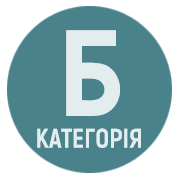DIGITALIZATION OF HR-PROCESSES IN AN ENTERPRISE
DOI:
https://doi.org/10.32689/2523-4536/75-1Keywords:
personnel policy, personnel potential, digitization, digital technologies, human resourcesAbstract
The approach to digitizing HR processes encompasses various goals, determined by the business's nature and its clients' needs. Digitization is not just about implementing digital tools into a company's workflow. It requires a complete overhaul and optimization of business processes, as well as active adoption of cutting-edge technologies to increase productivity and enhance customer interaction. Digitization opens up broad opportunities for enhancing the efficiency and competitiveness of enterprises; however, it is important to clearly define the goals of digital transformation in accordance with the needs of the business and its clients. The purpose of this article is to examine the essence, advantages, and challenges of digitizing HR processes in an enterprise. The author examines the key advantages of digitizing HR processes, which include: enhanced competitiveness, streamlining information management, cost savings, and positive impact on the company's image. It is noted that successful utilization of digital technologies in personnel management requires a focus on fostering a learning culture and technological competencies among the staff. The author highlights that a shortage of digital talents is expected globally in the near future, becoming a major challenge for organizations, surpassing even concerns regarding cybersecurity or investment volumes. One of the key factors influencing the pace of digitization of HR processes in an enterprise is the institutional environment, including governmental policies, legislative framework, and fiscal instruments. In comparing the classical paradigm of personnel management with digitized HR processes, the author identifies the following differences: primary resource, task types for personnel, division of labor, management style, focus, and technology utilization. Based on the conducted research, three main directions of digitizing HR processes are identified: digital workforce, digital workplace, and digital HR. Digital transformation opens unlimited opportunities for development and growth for enterprises. Only those who are ready to actively adapt to the new demands of the time and implement innovative approaches will be able to compete successfully in the modern business environment.
References
Armstrong M. Armstrong's Handbook of Performance Management: An Evidence-Based Guide to Delivering High Performance. London: Kogan Page, 2015. 416 p.
Heathfield S.M. Performance Management Is NOT an Annual Appraisal, 2014. URL: http://humanresources.about.com/od/performanceevals/a/Performancemgmt_2.htm
Houldsworth E., Jirasinghe D. Managing and Measuring Employee Performance. London: Kogan Page, 2006. 245 p.
Neely A. Business Performance Measurement: Unifying Theory and Integrating Practice. Cambridge: Cambridge University Press, 2011. 528 p.
Apalkova V. V. The concept of digital economy development in the European Union and prospects of Ukraine. Bulletin of Dnipropetrovsk University. Series: Innovation Management. 2015. № 4. P. 9–18.
Veretyuk C., Pilinsky V. Technological gap between information systems formation. International Independent Scientific Journal. 2017. № 22 (1). P. 37–41.
Chmeruk G. G., Kralich V. R., Burlakova I. A. Some aspects of digital transformation of enterprises. Economics and Management of Enterprises. 2018. № 34. P. 97–101.
Краус Н. М., Голобородько О. П., Краус К. М. Цифрова економіка: тренди та перспективи авангардного характеру розвитку. Ефективна економіка. 2018. № 1. URL: http://www.economy.nayka.com.ua/?op=1&z=6047
Kolyadenko S. Digital economy: prerequisites and stages of formation in Ukraine and in the world. Economy. Finances. Management. 2016. № 6. P. 106–107.
Karcheva H. T., Ohorodnia D. V. and Openko V. A. Digital economy and its influence on development of domestic and international economies. Finansovyi prostir. 2017. № 3. P. 13–23.
Armstrong M. (2015) Armstrong's Handbook of Performance Management: An Evidence-Based Guide to Delivering High Performance. London: Kogan Page. 416 p.
Heathfield S. M. (2014) Performance Management Is NOT an Annual Appraisal 2014. Available at: http://humanresources.about.com/od/performanceevals/a/Performancemgmt_2.htm.
Houldsworth E., Jirasinghe D. (2006) Managing and Measuring Employee Performance. London: Kogan Page, 245 p.
Neely A. (2011) Business Performance Measurement: Unifying Theory and Integrating Practice. Cambridge: Cambridge University Press. 528 p.
Apalkova V. V. (2015) The concept of digital economy development in the European Union and prospects of Ukraine. Bulletin of Dnipropetrovsk University. Series: Innovation Management, no. 4, pp. 9–18.
Veretyuk C., Pilinsky V. (2017) Technological gap between information systems formation. International Independent Scientific Journal, no. 22 (1), pp. 37–41.
Chmeruk G. G., Kralich V. R., Burlakova I. A. (2018) Some aspects of digital transformation of enterprises. Economics and Management of Enterprises, no. 34, pp. 97–101.
Kraus N. M., Holoborod'ko O. P. and Kraus K. M. (2018) Tsyfrova ekonomika: trendy ta perspektyvy avanhardnoho kharakteru rozvytku. [Digital economy: trends and perspectives of the abangard change of development]. Efektyvna ekonomika, vol. 1, Available at: http://www.economy.nayka.com.ua/?op=8&w=%D0%9D.+%D0%9C.+%D0%9A%D1%80%D0%B0%D1%83%D1%81 (in Ukrainian)
Kolyadenko S. (2016) Digital economy: prerequisites and stages of formation in Ukraine and in the world. Economy. Finances. Management, no. 6, pp. 106–107.
Karcheva H. T., Ohorodnia D. V. and Openko V. A. (2017) Digital economy and its influence on development of domestic and international economies. Financial space, no. 3, pp. 13–23.









